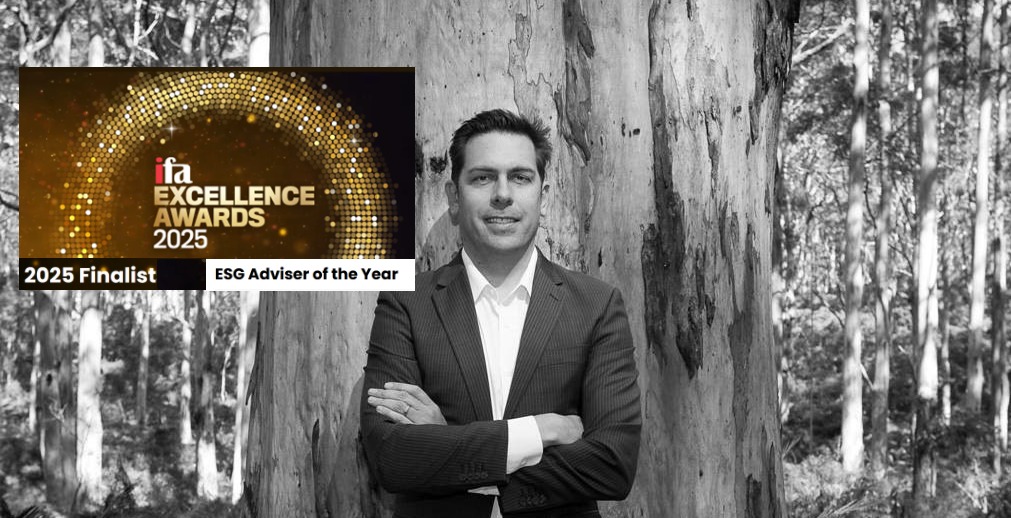Following a recent review by Standard & Poor’s, Perpetual’s Ethical SRI Fund maintained its ‘4 star’ rating.
Highlights from Standard & Poor’s Sep 2011 report include:
- ‘We still regard this fund as an attractive, true-to-label offering in the ethical/SRI Australian equities peer group.’
- ‘We remain comfortable with the strength of Perpetual’s experienced team and its robust and well-proven investment process.’
Q&A with Pablo Berruti
Pablo Berrutti is Perpetual’s Manager of Responsible Investments and Sustainability. In this role, he is responsible for designing, implementing and maintaining the responsible investment framework across Perpetual Investments.
Pablo is also very involved in the industry’s focus on responsible investment. In this capacity, he has participated in initiatives with the Investor Group on Climate Change, Responsible Investment Association of Australasia and the Financial Services Council’s Environmental, Social & Governance working group. Pablo has over 10 years financial services industry experience and is currently studying to complete a Graduate Certificate in Sustainability with the Harvard Extension School.
Q: What is Perpetual’s level of commitment to responsible investment?
A: Perpetual is committed to investing our clients’ money responsibly. So much so, that in 2009 we became a signatory to the United Nations Principles for Responsible Investment (UNPRI).
We make active investment decisions based on intensive analysis of an investment’s quality, value and risk. So to us ‘responsible investing’ means fully understanding all the factors that can affect the value of our clients’ investments, including environmental, social and governance (ESG) considerations.
We can also use our influence as a shareholder to bring about changes in companies’ ESG practices to protect the value of our clients’ investments.
Q: What are the UNPRI?
A: The UNPRI are a set of voluntary principles for incorporating ESG issues into mainstream investment decision-making and ownership practices. They’re different from the common perception of Socially Responsible Investing (SRI), because they don’t require investors to exclude or screen companies, instead we commit to incorporating ESG factors that present material risks or opportunities for companies into our regular analysis and then engage with companies to improve their practices.
There are six principles, which are:
- Principle 1: We will incorporate ESG issues into investment analysis and decision-making processes
- Principle 2: We will be active owners and incorporate ESG issues into our ownership policies and practices
- Principle 3: We will seek appropriatedisclosure on ESG issues by the entities in which we invest
- Principle 4: We will promote acceptance and implementation of the Principles within the investment industry
- Principle 5: We will work together to enhance our effectiveness in implementing the Principles
- Principle 6: We will each report on our activities and progress towards implementing the Principles.
Q: Why did Perpetual become a signatory to the UNPRI and why is this important?
A: Perpetual became a signatory to the UNPRI because it’s important to our clients and because we’ve always considered ESG issues in our investment process.
It’s important because when we invest clients’ money, we seek the best risk-adjusted investment returns over specified time periods. We do this by focusing on both the quality and value of investments. This investment philosophy recognises that while traditional financial measures are an important consideration, other factors, like ESG, can also influence the performance of an investment.
We also recognise that the influence of these factors is growing and will require closer scrutiny as:
- an increased science-based understanding of our impact on the environment, coupled with a growing population, force significant changes to economies globally and also impact the relative performance of individual investments
- globalisation, the rise of non-government organisations and the free flow of information, heighten social and environmental risks for an increasing number of companies
- businesses have become larger and more complex, and so require good corporate governance practices to ensure management accountability, transparency and focus, while avoiding unethical practices.
For us, the consideration of ESG factors does not include making moral judgements on particular practices or issues (although we do incorporate this screening as an additional part of the investment process for the Perpetual Ethical SRI Fund). Instead, when deciding whether to buy, retain or sell an investment, we consider those ESG risks and opportunities that are relevant to either the quality, or the current or future value of the investment.
Q: How has Perpetual scored on UNPRI?
A: As a signatory, we complete an annual report for the UNPRI on our progress. The UNPRI then score our responses and benchmark us against other asset managers. Our recent results for our second report were broadly pleasing. The main highlights were:
- an improvement in our scores across all areas
- above median scores for Perpetual when compared to global peers in four out of seven areas (the six principles, and governance, policy and strategy for implementing the principles)
- top quartile performance for principle 5 and second quartile for governance, policy and strategy, and principles 3 and 4.
Perpetual’s scores were above median in four out of seven areas

Source: UNPRI Benchmarking Report 2011
Q: Where to from here?
A: There are two key ways we intend to ‘ramp up’ what we’re doing over the next year. Firstly, we’ll be implementing a system that will not only deliver aggregated ESG data to equity analysts and portfolio managers but will also allow us to capture their views and engagement priorities. This will help us source better research, assess training requirements and enhance our reporting to clients on these issues.
The important thing to remember is that responsible investment is about processes not products. Incorporating ESG considerations into our processes is a journey that involves formalising and being transparent about those things we have always done, while proactively increasing the sophistication with which we consider these issues so that we can stay ahead of the curve. By doing this we can promote a constructive dialogue with our stakeholders and most importantly, protect our clients’ assets for the long-term.
Source: Perpetual 2011, http://images.perpetual.com.au/content/198_10_Advocate_Oct11/host.asp?m=




